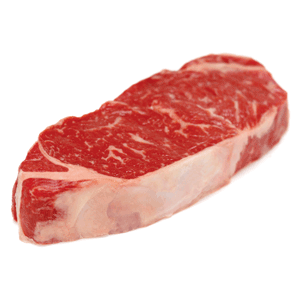 I originally considered naming this article “How Much Protein is Enough” but realized that “enough” is a bad word to use. As you can see, I changed “enough” to “optimal” because that is really what we are after–the optimal level of protein intake to meet our goals.
I originally considered naming this article “How Much Protein is Enough” but realized that “enough” is a bad word to use. As you can see, I changed “enough” to “optimal” because that is really what we are after–the optimal level of protein intake to meet our goals.
The Protein Myth
Apparently the topic of how much protein consumption is optimal has been around since the ancient times. During my research for this article I came across the legend of Milo. He allegedly ate 20 lbs. of meat daily. In the 70's the muscle magazines began to create a frenzy that got people drinking whole milk, eating eggs and eating lots of meat in an effort to get the physique of these musclemen they featured. In the 90's protein powder became a staple in the discussion.
The Science of Protein
Protein is comprised of carbon, nitrogen, hydrogen and oxygen.It accounts for 50% of the body's dry weight. Apparently humans consist of over 50,000 proteins. Proteins are involved with most anything going on with the human body.
As someone interested in bodybuilding, I am sure you know that protein aids with muscle repair, but that's not all. Protein also helps repair red blood cells, aids in hair growth and fingernail growth as well. Protein helps with regulation of hormone secretion, movement (muscle contraction), digestion, maintenance of the body's water balance, protection against disease, transport of nutrients to and from cells, the carrying of oxygen and regulation of blood clotting.
Clearly protein is involved in a large number of things. Unfortunately, many bodybuilders and personal trainers have led us all to believe it is only involved with muscle repair.
Protein Intake Recommendations
The Recommended Daily Allowance for sedentary adults is currently 0.8 grams per kilogram of lean body weight. Children should be getting triple this amount because of their rapid growth. How did they reach these conclusions?
Scientists used a test that involved the nitrogen levels in the body to determine where the tipping point is. The nitrogen balance test uses nitrogen loss in the form of sweat, urine, feces, shedding of skin, and loss of hair on a day-to-day basis. It examines this number. If there is a positive balance in nitrogen levels in the body, it means there has been more nitrogen ingested than excreted, and so, tissue growth can be a direct result. A negative balance shows researchers that more nitrogen is being excreted than taken in, and this means, of course, that more protein is being lost than produced. Basically, the protein requirement for sedentary adults involves replacing routine losses-the task, so to speak, is to keep the leaky bucket topped up. The idea is simple.
Remember that this number (0.8 grams per kilogram of lean body weight) is for sedentary adults. What happens when exercise enters the picture? It seems clear that exercise will increase the protein requirements. Through the research of the Letterman Army Institute of Research in San Francisco and Susan M Klieiner, PhD. we can conclude that an adult involved in regular exercise should have between 1.6 and 2.2 grams of protein per kilogram of lean body weight daily.
When Can Protein Be Bad?
There are studies that list out negative effects of taking in too much protein. These studies quite often mislead. For instance, there is a study that says too much protein will lead to kidney problems, but the study was conducted on people who already had kidney disease. This is just one example of misleading studies in this area. I have chosen not to address this issue in this article because of how misleading the research is. I suggest you do your own research and make up your own mind on the matter.
Conclusion
It is safe to say that if you ingest between 1.6 and 2.2 grams of protein per kilogram of lean body weight daily you and you exercise intensely on a regular basis, you will be fine. The numbers show you will gain lean mass with this approach.
References on Protein Intake
- Recommended Dietary Allowances, 10th Edition. Washington, D.C.: National Academy Press, 1989.
- Consolazio GF, et al. Protein metabolism during intensive physical training in the young adult. Am J Clin Nutr 1975; 28:29-35
- Dragan GI, Vasiliu A, Georgescu E. Effects of increased supply of protein on elite weightlifters. In: Galesloot TE, Tinbergen BJ, eds. Milk Proteins. Pudoc, Wageningen, The Netherlands 1985:99-103
- A high ratio of dietary animal to vegetable protein increases the rate of bone loss and the risk of fracture in postmenopausal women. DE Sellmeyer, KL Stone, A Sebastian, SR Cummings. American Journal of Clinical Nutrition, 2001, Vol 73, Iss 1, pp 118-122.
- Guyton M.D., Arthur C. Human Physiology and Mechanisms of Disease; 1992.
- Arnal MA, Mosoni L, Boirie Y, Houlier ML, Morin L, Verdier E, Ritz P, Antoine JM, Prugnaud J, Beaufrere B, Mirand PP. Protein pulse feeding improves protein retention in elderly women. American Journal of Clinical Nutrition. 1999 Jun;69(6):1202-8.
